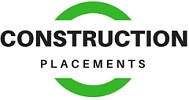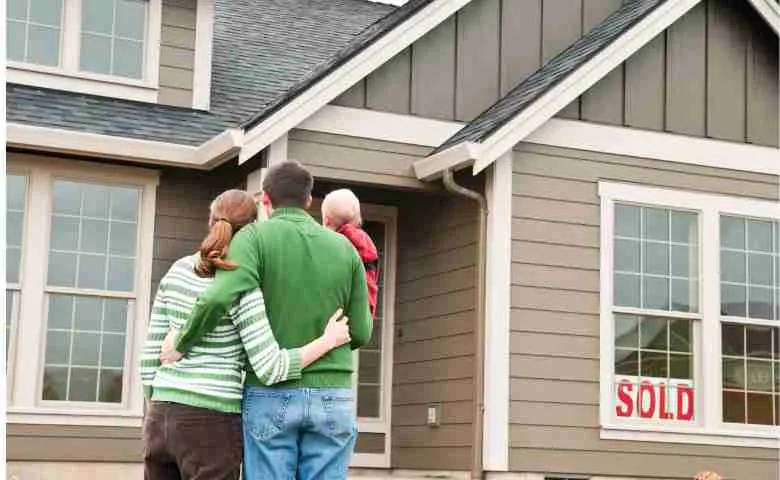Last Updated on September 10, 2024 by Admin
Thinking about building your first home rather than buying an established property? Then chances are you’re feeling just as terrified as you are excited right now. Building your own home can come with its fair share of trials, so knowing all the ins and outs of the process before embarking on it yourself is always wise. That’s precisely why we’ve compiled this little guide today.
Read on to unearth our top 8 considerations that you’ll need to make when looking to build your first home.
1. Determine Your Budget
Before embarking on your home-building journey, it is absolutely crucial to determine a realistic budget. If you’re unsure of the numbers, you can always find out how much you can afford to borrow by using an online borrowing power calculator. Figuring out how much you can afford sooner, rather than later will help you to develop a clear framework for planning your home-building project. With a budget in place, you’ll have a better grasp of costs throughout the home-building process, allowing you to seek accurate quotes from contractors and suppliers, compare prices, and make informed decisions about materials, finishes, and other aspects of construction.
It also becomes a lot easier to secure financing or apply for home loans with a fixed budget in place. Lenders typically assess your ability to repay the loan based on your budget and financial standing, and having a clear budget plan demonstrates your financial responsibility and increases your chances of obtaining favourable loan terms.
Related Post:
- No Money for Higher Studies, What you should do instead?
- The Role of Civil Contractors in the Construction Business
- 10 Types of Construction Contractors and Why They’re Necessary
- Construction Building Inspector Job Description and Salary
2. Choose A Reputable Builder
Now that you have your budget in place, it’s time to start hunting for a reputable builder who will take your plans from dream to reality. When selecting a builder, it is crucial to make the right choice from the start, considering the long-term working relationship you will have with them.
To ensure a smooth construction process, here are several factors to consider:
- Credentials: Verify that the builder holds appropriate licences and insurance. Additionally, check if they are affiliated with reputable industry associations such as Master Builders or the Housing Industry Association (HIA).
- References: Look into the builder’s past work and customer satisfaction. Request references from previous clients before signing any contract. Read reviews, visit display homes, and speak with previous clients to ensure you select a builder who understands your vision and can bring it to life.
- Past Work: It is important to examine homes previously constructed by the builder to assess the level of quality and craftsmanship you can expect to see in your own home. Research resale data for these properties to gauge their market value and long-term durability.
- Style: Be sure to consider whether the builder’s past work aligns with your preferred design style and vision. While a builder may excel in a particular style, it’s important to ensure their expertise matches your desired home style. If not, it may be wise to explore other options.
- Price: Lastly, as mentioned previously, consider your budget. All other factors become irrelevant if the builder’s services are beyond your financial means. Determine a budget range and seek builders who can work within that range without compromising quality.
3. Understand Your Agreement
Now that you’ve chosen your builder, it’s time to hone in on your building contract and agreements. First and foremost, your building agreement outlines the rights and responsibilities of both you as the homeowner and the builder. It establishes the scope of work, payment terms, and any specific requirements. Understanding these terms ensures that both parties are clear on their obligations, minimising potential disputes or misunderstandings. Ensure that the agreement includes a cooling off period, allowing you to reconsider the contract within a specified timeframe. Additionally, check that the agreed-upon construction timeframe aligns with your needs and expectations. By paying attention to these factors and seeking professional advice when necessary, you can enter into a building agreement with confidence, knowing that your rights and interests are protected.
4. Check Grants & Concessions You May Qualify For
The good news is that if you’re building your first home in Australia, you could be entitled to a variety of grants and/or concessions depending on the state or territory in which you live. For example, the First Homeowners Grant (FHOG) is a national scheme that provides a one-time grant to eligible first home buyers. The grant amount varies across states and territories, ranging from $10,000 to $20,000, and is typically applicable to new or substantially renovated homes.
You may also be eligible for the First Home Loan Deposit Scheme (FHLDS), which assists eligible first home buyers in purchasing a home with a deposit as low as 5% without the need for lenders mortgage insurance (LMI). The government guarantees a portion of the loan, allowing borrowers to access loans with smaller deposits. To ensure you aren’t missing out on potential savings, be sure to stay updated on any changes or new initiatives introduced by the government, as these programs may evolve over time to support first home buyers in Australia.
5. Consider Design & Layout
Now that the nitty gritty aspects of finance and contracts are out of the way, it’s time to get stuck into the most exciting bit of building your first home, aka, design and layout. When designing your dream home, it is always recommended to work with an architect or designer to create a floor plan that maximises space and functionality. Some factors to consider when designing your space include current and future needs, such as the number of bedrooms, bathrooms, storage space, and any specific features or rooms you desire. For example, if you are someone who enjoys entertaining and dinner parties, an open layout may be your best bet. If you are planning on starting a family, you might want to prioritise yard space and smart storage solutions, and the list goes on. The most important thing is that your new home should reflect who you are. Forget about trends, and instead, make your selections based on your own lifestyle in mind.
Related Posts:
- How To Find A Good New Build Property Developer
- Navigating Funding Options for Small Construction Firms: Beyond Traditional Loans
6. Communication Is Key
During the construction process, it is important to maintain frequent communication with your builder and tradespeople. Establish clear and open lines of communication with your builder and project manager, regularly communicate your expectations, ask questions, and stay involved in the decision-making process. At the end of the day, effective communication ensures that your vision is properly understood and implemented throughout the construction process. While you’re at it, don’t be afraid to pinpoint things that you’re not happy with — it’s always worth putting up a fight for elements and details that are important to you. This is your dream home, and you’re spending your hard earned money on it, so don’t be afraid to voice your concerns during the building process.
7. Hire An Independent Inspector
As a general rule of thumb, each phase of the construction process (foundation, frame, lock-up and pre-handover stages) should be inspected by an independent building inspector. While this may cost you more initially, independent inspections can potentially save you a ton of money in the long run. This is because inspectors can identify potential issues or defects during the construction process, allowing them to be addressed promptly. By detecting problems early on, you can prevent them from escalating into more significant and costly concerns later in the project. Not to mention, independent inspectors ensure that construction practices comply with relevant building codes, regulations, and safety standards. Their thorough inspections help identify any non-compliant areas, ensuring that your home is built safely and according to legal requirements.
8. Know Your Rights
Last but not least, as a first-time home builder, understanding your rights as a consumer is essential. It ensures that you are treated fairly and are aware of any consumer protections available to you. In the event that you have diligently planned your building process, managed your budget effectively, and selected a reputable builder, the likelihood of encountering significant issues is minimal. However, should unforeseen challenges arise, there are several avenues available to address complaints against builders, depending on your state and territory. If the issue remains unresolved or is of a more serious nature, you may consider seeking legal advice. Consult with a lawyer specialising in construction law to understand your rights, options, and the potential for legal action. They can guide you through the legal process and represent your interests if necessary.
And there you have it — 8 important considerations to make when building your first home. By carefully considering the factors mentioned in this piece, you can set yourself up for success and create a home that aligns with your vision and lifestyle for years to come. All the best, and good luck!
Have a question about building your first home? Don’t be shy — reach out in the comments section below and we’ll get back to you in a jiffy!


